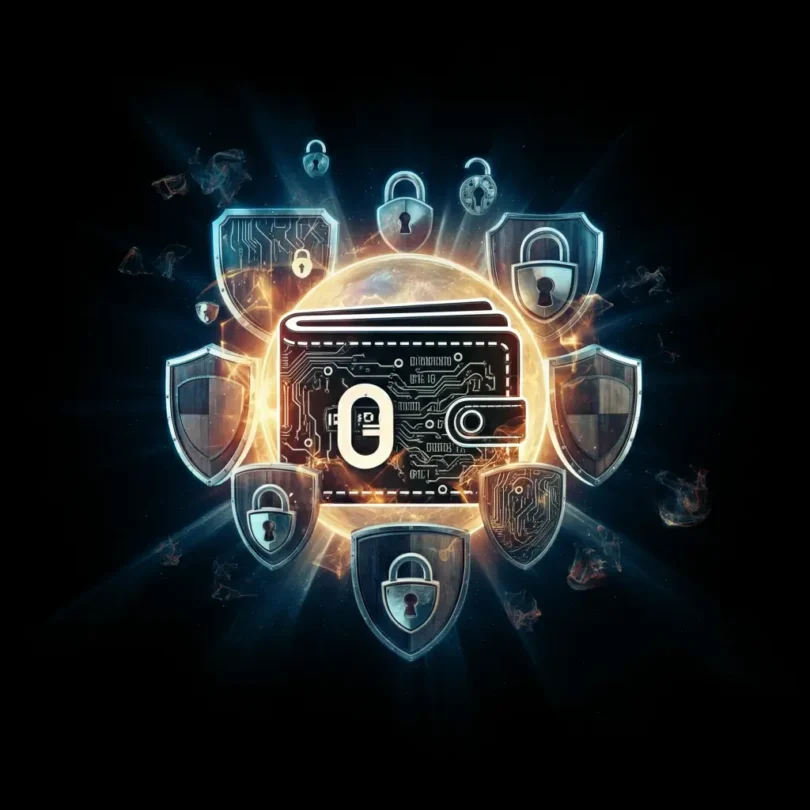Digital wallets have become a convenient, secure way to pay for goods and services, whether online or in person. With just a few taps, you can complete transactions without the hassle of carrying cash or cards. However, as with any digital tool, security is paramount. If you’re already using a digital wallet or considering getting started, it’s essential to understand how to keep your information safe and what to do if your wallet is ever compromised.
This guide offers practical tips to protect your wallet and explains how to handle breaches effectively.
What Are Digital Wallets?
A digital wallet, also known as an e-wallet, securely stores your payment information and passwords for various payment methods and websites. This makes it easy to pay for goods and services without fumbling for a credit card or entering payment details each time. Depending on the platform, digital wallets may integrate with mobile payment systems, allowing you to tap your phone or smartwatch at physical stores, or they may serve as an online payment tool for e-commerce sites.
In addition to payment information, digital wallets can store a variety of data such as:
- Loyalty card information
- Personal identification, like your driver’s license or ID card
- Health insurance details
- Digital coupons and tickets
Benefits of Digital Wallets
- Enhanced Security Features
Digital wallets are generally more secure than carrying physical cards or cash. They use modern security measures like encryption, tokenization, and multi-factor authentication to protect your data. - Convenience and Ease of Use
Forget digging through your wallet—the convenience of having everything you need in one device saves time and effort. - Faster Transactions
Digital wallets allow you to breeze through checkouts, whether in-store or online, with just a tap or click. - Integrated Financial Tracking
Many digital wallets offer built-in budgeting tools, helping you track your spending habits and manage finances more effectively.
How to Secure Your Digital Wallet
Although digital wallets come with advanced security features, you can take additional measures to ensure your information remains safe.
1. Use Strong Passwords
A strong password is your first line of defense. Create a password that is long, complex, and unique to your digital wallet. A strong password should include a mix of uppercase and lowercase letters, numbers, and special characters. Avoid reusing passwords across accounts, and consider using a password manager to generate and store your passwords securely.
2. Regularly Update Software
Ensure your digital wallet app and your phone’s operating system are always up to date. Updates often include security patches that fix vulnerabilities, protecting your device from exploitation. Turning on automatic updates can help ensure you don’t miss any critical fixes.
3. Back Up Your Wallet
Regularly back up your digital wallet to avoid data loss in case your device is lost or compromised. Store physical backups, such as USB drives, in a secure location. If you’re using cloud backups, choose a provider with strong security protocols and always encrypt your data.
4. Protect Your Device
Since most digital wallets are accessed through smartphones, securing your device is crucial to protecting your funds. Best practices include:
- Setting a strong passcode or using biometric authentication like fingerprints or facial recognition.
- Avoiding easy-to-guess passcodes like “1234” or your birth year.
- Ensuring your phone’s operating system is regularly updated to address security vulnerabilities.
Preventing Unauthorized Scanning
Digital wallets typically use technologies like NFC (Near Field Communication) for contactless payments. While convenient, this can leave your device vulnerable to unauthorized scanning by hackers. To prevent this:
1. Use RFID-Blocking Cases
RFID-blocking phone cases or sleeves protect your device by blocking electromagnetic signals, making it harder for hackers to scan your information.
2. Disable Bluetooth
Bluetooth connections can be exploited for unauthorized access. Turn off Bluetooth when you’re not using it to reduce the risk of unwanted connections.
3. Be Cautious with Public Wi-Fi
Public Wi-Fi networks are often unsecured, making them a hotspot for hackers. Avoid connecting to public networks for sensitive transactions. If you must use public Wi-Fi, always use a Virtual Private Network (VPN) to encrypt your data.
What to Do If Your Wallet is Compromised
If your digital wallet is breached, act quickly to minimize damage and prevent further fraudulent activity. Here’s what you should do:
1. Change Your Passwords
Immediately update the password for your digital wallet and any associated accounts. If you’ve reused this password elsewhere, change those passwords too.
2. Notify Your Wallet Provider
Contact your digital wallet’s customer support team to report the breach. They can help secure your account, track any unauthorized transactions, and provide specific recommendations for recovery.
3. Monitor Your Accounts
Keep a close eye on your wallet and any linked financial accounts for unusual activity. Set up transaction alerts to notify you of any suspicious behavior.
4. Set Up a New Wallet
If possible, transfer your funds to a new digital wallet. During setup, enable additional security measures such as two-factor authentication (2FA) and multi-signature protocols for increased protection.
In Summary
Digital wallets are a secure, convenient, and fast way to manage payments and store sensitive information. However, protecting your digital wallet requires proactive measures:
- Use strong, unique passwords and consider a password manager.
- Keep your wallet app and phone’s software up to date.
- Back up your wallet regularly and secure your device with biometric authentication.
- Avoid public Wi-Fi and consider RFID-blocking cases for added protection.
If your wallet is compromised, act quickly—change passwords, notify your provider, and monitor for unusual activity. By following these steps, you can enjoy the benefits of a digital wallet while keeping your information safe and secure.
Stay informed, stay secure, and enjoy the convenience of digital wallets with confidence.







